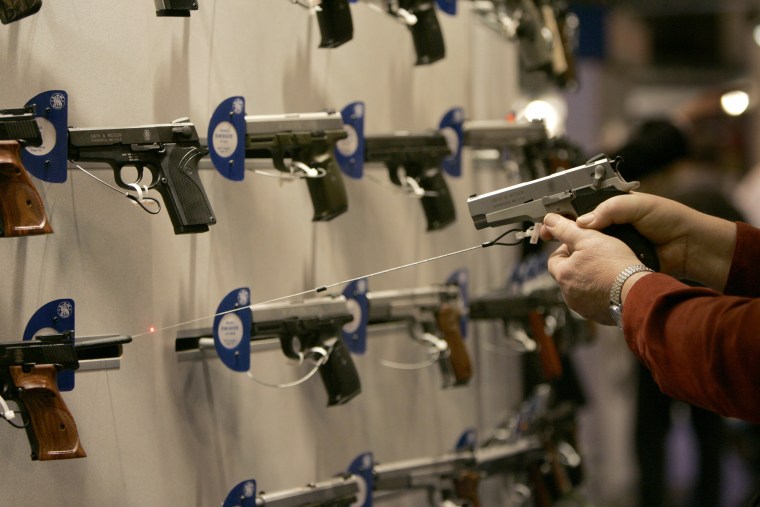The day after the mass shooting in Parkland, Fla., then-House Speaker Paul Ryan (R-Wis.), a longtime opponent of new gun measures, said Congress needs to "take a breath and collect the facts." He added, "We don't just knee-jerk before we even have all the facts and the data."
At first blush, that may have seemed sensible. The trouble, as regular readers may recall, has been that access to facts and data has been severely limited by something called the Dickey Amendment, approved in the 1990s, which effectively made it impossible for the Centers for Disease Control and Prevention and the National Institutes of Health to study gun violence. Democratic efforts to change the policy have, for many years, faced intractable GOP resistance.
As Rachel noted on last night's show, however, this week appears to have brought a breakthrough. The Washington Post reported late yesterday:
Congressional leaders reached a deal to fund research on gun violence for the first time in more than 20 years, a major legislative victory for Democrats, researchers and anti-gun-violence activists.The deal -- still pending final approval as congressional negotiations continue over a must-pass, end-of-year spending bill -- would send $25 million to the Centers for Disease Control and Prevention and the National Institutes of Health to study gun violence, with each agency receiving $12.5 million, according to congressional aides.
To be sure, $12.5 million in federally funded research may not sound like a massive investment, but it's a policy breakthrough that's been decades in the making.
Let's back up for a minute and revisit our earlier coverage to better understand how we reached this point.
When Arkansas Republican Jay Dickey first crafted his amendment in 1997, he didn’t explicitly ban research on gun violence. Rather, what his measure said was that no CDC funds could be “used to advocate or promote gun control.”
For CDC researchers, however, that language was far too vague to be useful. After all, if they did a study on gun violence that Congress perceived as “advocacy” for new gun policies, their work could end up being inadvertently illegal. As a result, Dickey’s policy – which he later regretted – had a chilling effect on research, to the public’s detriment.
Last year, there was some modest progress on the issue when lawmakers included some "clarifying" language in a spending bill, opening the door to some CDC research, but this year, at Democrats' insistence, Congress has gone much further, actually allocating funds for research on gun violence.
I can appreciate why this may seem like a modest victory for reform advocates. It's not an assault-weapons ban, for example, or a new policy on universal background checks. But let's not lose sight of the larger context: it's been decades since federal policymakers actually passed anything resembling a progressive policy on this issue.
Sen. Chris Murphy (D-Conn.), who took partial credit for the developments, wrote on Twitter, "It's not often that you can feel a seismic political shift at the very moment it's happening.... Our movement is winning. And this is just the start."
